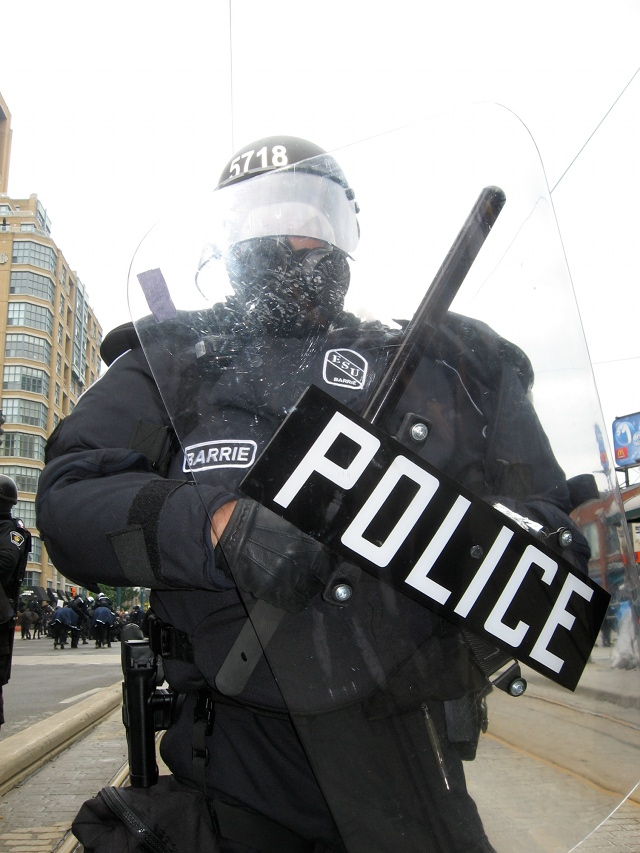One of the more nettlesome problems in anti-discrimination law is how it intersects with free speech rules. Laws against harassment, for example, often target speech -- usually terrible, crass, bigoted speech, but speech all the same. Laws against discrimination likewise interfere with freedom of association -- grotesque, biased preferences regarding who to associate with, but association all the same. As a society, we've at least implicitly decided that anti-discrimination norms can -- at least in some circumstances -- trump free speech norms, and I'm totally okay with that. But our implicit agreement hasn't really cashed out into explicit acknowledgement of the tension, and that means that we don't always have a fully-thought-through sense of how speech and discrimination intersect.
These problems have come to a head with Congress considering the
Anti-Semitism Awareness Act, just recently (and swiftly) passed in the Senate and now moving to the House. The Act basically expands the definition of "anti-Semitism" under Title VI of the Civil Rights Act (encompassing educational equality -- for our purposes, laying out the duties educational institutions have with respect to preserving an environment free of anti-Semitic harassment) to codify the definition "set forth by the Special Envoy to Monitor and Combat Anti-Semitism of the Department of State in the Fact Sheet issued on June 8, 2010, as adapted from the Working Definition of Anti-Semitism of the European Monitoring Center on Racism and Xenophobia." The significance of that definition is that it explicitly seeks to consider when and in what circumstances anti-Israel sentiment qualifies as anti-Semitism.
Several commentators, including ones I respect like
Jesse Singal and the
ACLU, have raised First Amendment alarm bells (the bill contains a savings clause stating that "[n]othing in this Act, or an amendment made by this Act, shall be construed to diminish or infringe upon any right protected under the First Amendment to the Constitution of the United States", but critics worry those are empty words). After all, statements critical of Israel -- including statements vitriolically so -- are protected by the First Amendment. Even
the original drafter of the definition the ASAA incorporates opposes encoding it into US law, arguing that its purposes was to serve as a monitoring device for tracking anti-Semitic incidents, and thus is by design broader than what can be validly proscribed by law.
I don't dismiss the validity of these concerns. But I think they're in many ways oddly situated. They either frame the problem incorrectly, or take a genuine problem that's endemic to anti-discrimination rules and act as if it's uniquely presented by the anti-Semitism case.
To see why, let's divide discrimination cases into two groups: "speech + conduct" and "pure speech." We'll start with the former.
Suppose you declare "I hate Jews!" That's protected speech. Suppose you punch a Jew in the face. That's battery, but it's not a hate crime or an incident of discrimination under Title VI unless its done because they're Jewish (if you punched a Jew in the face because they were a Dodgers fan, it would still be a crime, but it would not be a case of
anti-Semitism). Finally, suppose you punch a Jew in the face while declaring "I hate Jews!" That is very likely to be deemed an incident of anti-Semitism under Title VI, as the speech establishes the requisite motive (that your punch was thrown because the target was Jewish). Presumably,
this manner of intersecting "speech" with discrimination law isn't controversial. Obviously, discrimination law looks into one's viewpoint in this respect -- it is entirely about differentiating conduct motivated by particular viewpoints (hating Jews, Blacks, women, Muslims, whomever) from conduct motivated by other concerns (sports fandom, parking disputes, general belligerency, etc.).
The most straightforward way of viewing what the Anti-Semitism Awareness Act does, given its First Amendment language, is to clarify what sorts of statements can establish an anti-Semitic motive
when coupled with otherwise actionable conduct. The person who punches a Jew while stating "I hate Jews" is clearly anti-Semitic in a way a person who punches a Jew while stating "that was my parking space" may not be. But what of the person who punches a Jew while stating "Zionists are Nazis!"? Surely still a case of battery, but is it a case of anti-Semitism? The puncher will likely say no -- their actions were motivated by political hostility towards Israel, distinct from anti-Semitism. The victim will usually argue yes -- stating "Zionists are Nazis" is a form of anti-Semitism; if that was the motive for the punch, it was an anti-Semitic punch.
Consider
the case of Paul Donnachie,* a student at St. Andrew's University who was convicted of grabbing a dormmate's Israeli flag, rubbing it against his pubic hair, while declaring that the student was a "terrorist", Israel was a "terrorist state", and the flag was a "terrorist symbol." Donnachie of course agreed that his actions were not "dignified", but contended that it was an act of "political expression" rather than anti-Semitism; the Scottish Palestine Solidarity Campaign likewise complained that Donnachie's conviction and expulsion "conflate[d] legitimate political criticism of the State of Israel with racism."
In cases like these, the issue isn't whether the challenged action is "speech" or "conduct". Everyone agrees that defacing another person's property is the sort of thing that can be regulated. The question is whether the
motive for that conduct falls within the set of malign motives covered by anti-discrimination law. Had Donnachie done what he did while saying "stupid Jew", there'd be no complaints that his free speech rights were violated (despite "stupid Jew"
also being a protected viewpoint). In these cases, the ASAA is simply clarifying that statements which meet the State Department definition do establish the necessary motive. One can disagree with that decision, but it's hard to characterize it as a
free speech objection without entirely dismantling the whole of anti-discrimination law. After all, if the problem is that our Jew-puncher is being punished in part for his viewpoint, that problem is equally manifest regardless of whether his views were "Zionists are Nazis" or "I hate Jews." Both are protected speech; both are treated differently from the view "Dodgers suck!"
I don't think that most of the free speech critics of the ASAA are worried about this set of cases. Rather, they're worried about a situation where "pure speech" -- simply saying "Zionists are Nazis", without any accompanying conduct -- could be investigated as a form of harassment.
Note again that this problem is not distinct from a policy saying "Jews are scum" can represent a form of harassment. Again, "Zionists are Nazis" and "Jews are scum" both are equally protected under the First Amendment. So as a
free speech objection, this argument only works if one is willing to say that speech alone can never create a discrimination violation. That is a theoretically cogent position. It is
not the status quo in civil rights law. Even absent any conduct acts -- touches, obstructions, vandalism, etc. -- "pure speech"
can result in a harassment finding in the right circumstances, e.g., if it is severe and pervasive enough to materially interfere with a student's ability to access their educational institution's resources. Constant sexual harassment that never leaves the realm of words would be a classic example of such a case.
So to the extent the ASAA would apply in a "pure speech" case, it would presumably apply on the same terms as any other scenario where speech alone is alleged to create a hostile environment. In general, isolated acts of verbal harassment are rarely sufficient to support a Title VI claim; simply being exposed, occasionally, to persons yelling out racist or sexist or anti-Semitic things does not create legal liability. The case would have to be something like a Jewish student who everyday encounters picketers telling him he's "Zionist Nazi scum." Should a student have a remedy in such case? Maybe, maybe not, but the "Zionist" part of the equation doesn't strike me as relevant from a
free speech perspective -- the same analysis would apply if it was a Muslim student perpetually being told she's "ISIS terrorist scum" or a female student told she's "a babymaker who should stay in the kitchen," or for that matter, a Jewish student simply being told she's "a greedy JAP." In all the cases, we are taking something that is -- in the broadest sense -- (terrible) political expression, and using it as the basis of a discrimination investigation. In all the cases, our limiting principle is not that these outlooks are "protected speech" (they all are), but rather requirements of severity and pervasiveness which are supposed to guard the line between protected speech and unlawful harassment.
Again, none of this is to say that there aren't valid free speech concerns here. There are! The point of this analysis is to show that those concerns are
pervasive in our discrimination law; this bill doesn't raise novel problems so much as it illuminates the difficulties which already exist.
Hence, for those persons who are generally content with the discrimination law doctrine we have, the "free speech" objection to the ASAA is a masquerade for a more straightforward substantive objection: They don't think that calling Zionists Nazis should be deemed anti-Semitic at all. A defensible position, perhaps, but not one that has anything to do with free speech if the proponent is not willing to level a similar objection to the myriad other ways that discrimination law supervenes on one's political outlooks. It's simply an on-the-merits dispute over what counts as anti-Semitic discrimination.
Meanwhile, there is a perfectly valid argument to be made that discrimination law is not sufficiently attuned to the ways in which it can chill valid political speech. Perhaps the ASAA makes those perils especially clear. But if we're going to go down that route we should actually go down it, not deceive ourselves into believing it can be restricted into a Jew-only one-off. The structure of the free speech objection to the ASAA cannot restrict itself solely to that case.**
* I'm pretending for sake of argument that Scottish law and American law are identical in this arena. They're not, of course, but I don't think that alters the usefulness of the example.
** The reverse is true as well: persons who airily dismiss the free speech worries in the anti-Semitism case cannot throw hysterical fits over how harassment law "makes it impossible" to say the things they want to say in the race or gender arenas.



